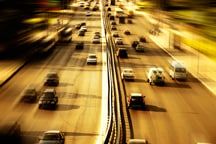 According to a new study from the National Highway Traffic Safety Administration (NHTSA), highway traffic crashes cost the U.S. $871 billion in economic loss and societal harm in 2010. $277 billion of that total was in economic costs while $594 billion was in societal harm, which includes loss of life and pain and decreased quality of life from injuries.
According to a new study from the National Highway Traffic Safety Administration (NHTSA), highway traffic crashes cost the U.S. $871 billion in economic loss and societal harm in 2010. $277 billion of that total was in economic costs while $594 billion was in societal harm, which includes loss of life and pain and decreased quality of life from injuries.
While previous studies, such as one conducted by AAA in 2011, determined highway crash crash costs based on Federal Highway Administration data such as property damage, loss earning, and lost quality of life, the NHTSA’s study focused more on driving behaviors that contributed to traffic accidents in 2010.
Can you guess which three behaviors contributed to most of 2010’s car crashes and related costs? According to the study, speeding, drunk driving, and distracted driving accounted for 56% of the total economic costs and 62% of the societal harm.
While speeding-related crashes accounted for the most traffic crash-related costs, drunk driving-related crashes accounted for 18%, or $49 billion, of the total economic loss and 23%, or $199 billion, of the total societal harm. Distracted driving-related crashes accounted for 17% of total economic loss and 15% of the total societal harm.
While the high economic costs and societal harm of car accidents in the U.S. are devastating, the study reinforces the importance of the NHTSA’s and other organizations’ efforts, including money spent, to reduce dangerous driving behaviors and creating safer roads. Every driver can also do his or her part to reduce the number of traffic accidents on our roads and highways and their staggering economic and societal costs by following a few driving safety tips:
- Never drink and drive.
- Buckle up.
- Avoid distractions, such as cellphones and other electronic devices, while driving.
- Stay alert and keep your eyes focused on the road.
- Follow posted speed limits and other traffic laws.
- Share the road with motorcyclists and bicyclists and watch out for pedestrians.
- Talk to your teens about safe driving behaviors and make sure they know that drunk or drugged driving, distracted driving, and speeding are both dangerous and unacceptable driving behaviors.
